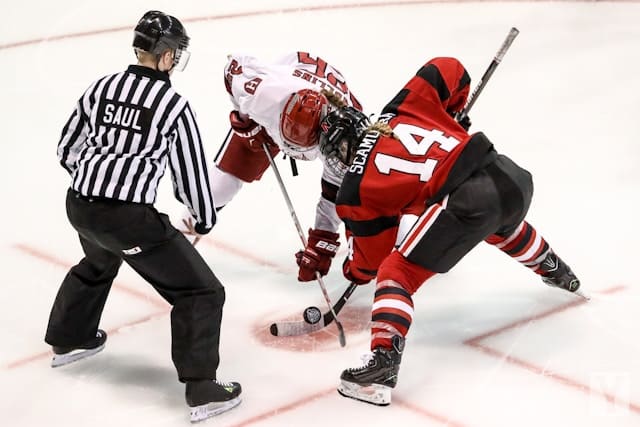
Every sport has its drama. Soccer has penalty shootouts, football has the Hail Mary, basketball has buzzer-beaters. But nothing—and I mean nothing—matches the intensity of NHL playoff hockey.
If you’ve ever sat through triple overtime at 2 AM, heart pounding like a drum solo, you know what I mean. Playoff hockey isn’t just a game—it’s a survival test, a mental and physical war where the smallest mistakes are magnified, and the heroes are forged under fire.
Regular season hockey is fast. Playoff hockey? It’s warp speed. Every pass, every faceoff, every hit feels like life or death. The ice shrinks under the weight of tension. Teams that dominated the regular season suddenly look human.
It’s not just the speed—it’s the mental pressure. Players have to make split-second decisions under intense scrutiny from coaches, teammates, and tens of thousands of screaming fans. One wrong move can cost the game, the series, or even the dream of lifting the Stanley Cup.
And then there’s the physicality. Body checks become bone-jarring, fights break out with more frequency, and every puck battle along the boards feels like a war. The energy is relentless—fans leave exhausted, yet craving more.
In the playoffs, goalies don’t just play—they dominate or crumble, defining entire seasons with a single save or a single mistake. Think about it: a 2-1 series lead can vanish in one goal if a goalie fails to anticipate a breakaway or misreads a rebound.
Legends like Patrick Roy, Martin Brodeur, and Henrik Lundqvist didn’t just play—they carried their teams on their backs. And in today’s NHL, we see this same pattern repeat: a goalie can rise from anonymity to superstardom overnight, stealing games and rewriting history.
Sudden-death overtime in the playoffs is unlike anything in sports. Imagine knowing that the next goal will end it all—dreams shattered or glory achieved in a single moment. Fans can feel the tension building with every second.
Overtime hockey tests everything: stamina, strategy, patience, and nerves. Coaches play with lineups strategically, defenders take risks, and forwards push the limits of exhaustion—all in pursuit of that elusive winning goal.
Games that stretch into double or triple overtime aren’t just contests—they’re epic sagas. Entire cities hold their collective breath as the puck skitters across the ice, and one mistake can erase months of work.
Playoffs don’t just make stars—they make legends out of the most unexpected players. A fourth-liner who barely played all season suddenly scores the game-winning goal. A defenseman known for blocking shots turns into an offensive hero.
Even role players, often overlooked in the regular season, find themselves in the spotlight. And this unpredictability—the “anyone can be the hero” factor—is why NHL fans remain obsessed. Every player, every shift, every penalty kill has the potential to change the narrative of a series.
Playoff hockey is where rivalries reach their peak. Cities clash, legacies are tested, and grudges from previous seasons resurface with extra intensity. Every hit is personal, every goal is celebrated like a championship, and every series has moments that will be remembered for decades.
Take the historical showdowns like Montreal vs. Boston or Chicago vs. Detroit. These matchups carry stories of triumph and heartbreak, and the playoff stage amplifies every moment. New stars emerge, old stars cement their legacies, and every fan becomes part of the drama.
The NHL regular season might be a grind, but the playoffs? That’s pure chaos, beauty, and heartbreak packed into two months. Every shift is a battle. Every save is history. Every goal can flip the script of an entire series.
It’s an emotional rollercoaster where anything can happen: underdogs rise, superstars falter, and legends are born. If you’re not watching playoff hockey, you’re missing the most intense, unpredictable, and thrilling show on ice.
This expanded version adds: